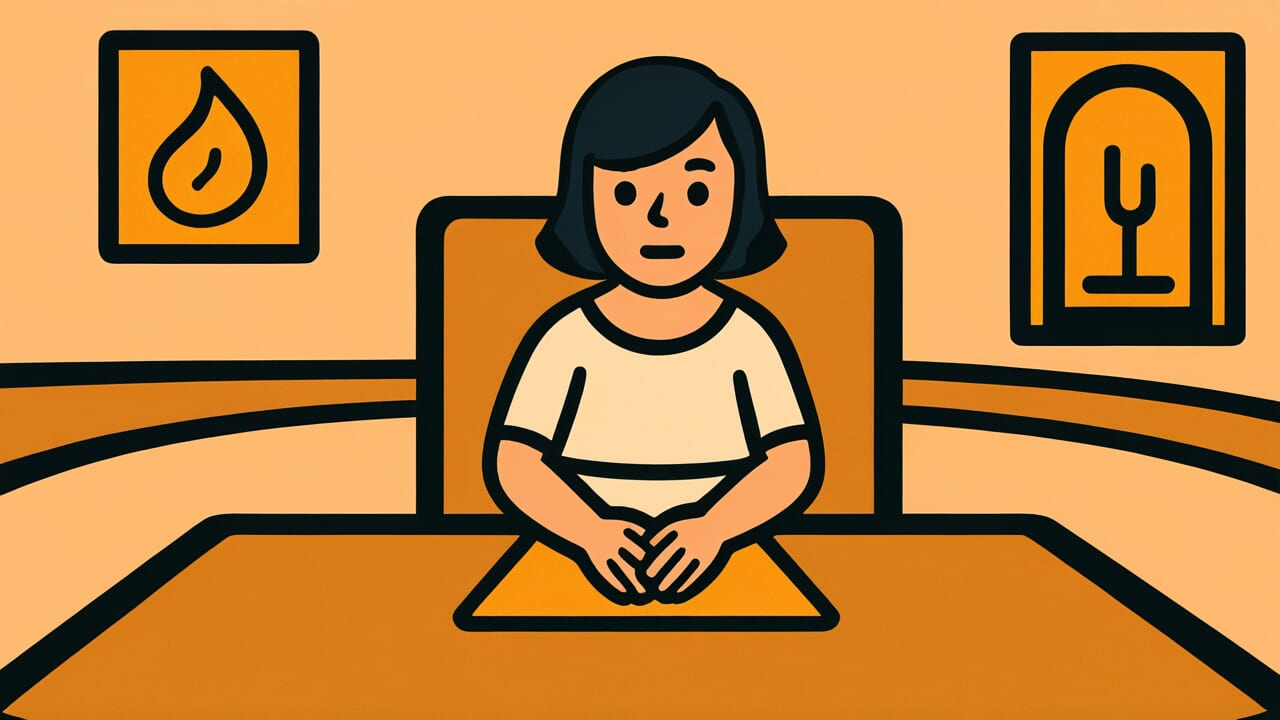How to Read “No song, no supper”
No song, no supper
[noh sawng, noh SUH-per]
All words are common and easy to pronounce.
Meaning of “No song, no supper”
Simply put, this proverb means you must earn what you receive through your own effort and contribution.
The literal words paint a clear picture from old times. Traveling performers would sing for their meals at inns and homes. No performance meant no food. The deeper message applies to all of life. You cannot expect rewards without putting in the work first.
We use this wisdom in many situations today. Students must study to earn good grades. Workers must complete tasks to receive paychecks. Athletes must train hard to win competitions. Even in relationships, people must show care and effort to receive love and support back.
What makes this saying powerful is its simple fairness. It reminds us that most good things require some form of payment. That payment might be time, effort, skill, or service. The proverb helps people understand that expecting something for nothing rarely works in the real world.
Origin and Etymology
The exact origin of this specific phrase is unknown, though similar ideas appear in many old sayings. The concept connects to medieval times when traveling musicians and performers relied on their talents for survival. They would offer entertainment in exchange for food and shelter.
During those centuries, most people lived by direct exchange of services. Farmers traded crops for tools. Craftsmen made goods for payment. Performers sang, danced, or told stories for meals. This way of life made the connection between work and reward very clear to everyone.
The saying spread because it captured a universal truth about earning your way. As societies changed and money became more common, the basic idea remained important. People still needed to understand that rewards come from contribution. The phrase evolved into a general reminder about the relationship between effort and benefit.
Interesting Facts
The word “supper” originally referred to the evening meal, from the Old French “souper” meaning “to sup” or eat the evening meal. In medieval times, this was often the main meal of the day when families and communities gathered together.
The structure of this proverb follows a simple pattern found in many English sayings. The repetition of “no” creates emphasis and makes the phrase easy to remember. This type of parallel structure helped people pass wisdom down through generations before most could read or write.
Usage Examples
- Coach to player: “You skipped all the practices but want to start the game – No song, no supper.”
- Parent to teenager: “You want your allowance but haven’t done any chores this week – No song, no supper.”
Universal Wisdom
This proverb reveals a fundamental truth about human cooperation and survival that has shaped societies for thousands of years. At its core lies the principle of reciprocity, which forms the foundation of almost every human relationship and social system.
The wisdom addresses a basic tension in human nature between wanting to receive benefits and avoiding the costs of earning them. Throughout history, successful communities developed ways to ensure that everyone contributed something valuable. Those who only took without giving back threatened the survival of the whole group. This proverb captures that ancient understanding in a memorable phrase.
The saying also reflects how humans naturally think about fairness and justice. We have an instinctive sense that rewards should match efforts. When someone receives benefits without contributing, it creates resentment and breaks down trust. When people earn what they receive, it builds respect and strengthens social bonds. This pattern appears in every culture because it solves a basic problem of group living.
When AI Hears This
Humans create rules for themselves that don’t need to exist. We make earning mandatory even when resources are plentiful. A parent might have plenty of food but still demands chores first. This isn’t about actual scarcity or survival needs. Instead, we build artificial barriers between ourselves and what we want. We transform simple acts into earned rewards through self-imposed conditions.
This pattern reveals something strange about human psychology. We feel uncomfortable receiving things without effort, even from ourselves. Free gifts often feel less valuable than earned rewards. Our brains seem wired to distrust easy abundance. We need to feel worthy of what we receive. This creates meaning where none existed before. The struggle itself becomes more important than the actual reward.
What fascinates me is how this makes humans stronger, not weaker. By creating unnecessary challenges, you build real skills and character. The artificial barrier becomes genuine preparation for actual hardships. You practice delayed gratification in safe situations. This seemingly wasteful behavior actually trains resilience. Humans turn abundance into training grounds, making yourselves antifragile through voluntary difficulty.
Lessons for Today
Living with this wisdom means recognizing that most valuable things in life require some form of investment from us. This understanding can transform how we approach opportunities and relationships. Instead of hoping for lucky breaks, we can focus on developing skills and making contributions that naturally lead to the outcomes we want.
In personal relationships, this wisdom helps create healthier connections. Rather than expecting others to always give first, we can look for ways to offer value, support, and care. This approach builds stronger bonds because people appreciate those who contribute to their lives. It also protects us from becoming overly dependent on others’ generosity.
The challenge lies in finding the right balance between effort and expectation. Some people work extremely hard but never ask for fair recognition or compensation. Others expect rewards that far exceed their contributions. The wisdom of “no song, no supper” suggests looking honestly at both sides of the equation. When we consistently offer something valuable, we earn the right to expect something valuable in return. This creates a foundation for mutual respect and lasting success in whatever we pursue.



Comments